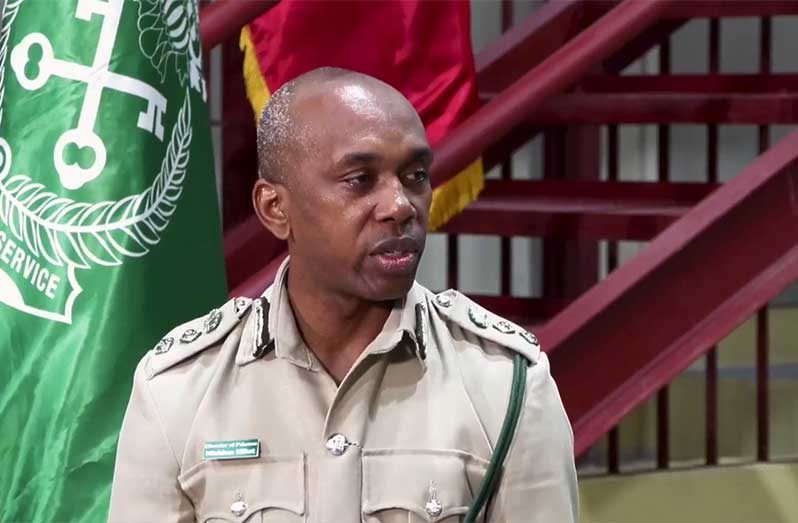–Director of Prisons highlights Guyana’s progress in prison reform, country’s low recidivism rate
GUYANA currently holds the distinction of having the lowest recidivism rate in the Caribbean Community (CARICOM), a major success that Director of Prisons Nicklon Elliot attributes to sweeping reforms in the prison system that focus on rehabilitation, reintegration, and purpose over punishment.
Speaking on Episode Seven of “Safeguarding Our Nation”, Elliot detailed the transformation of the Guyana Prison Service into a modern, rights-based institution aimed at reducing reoffending, improving public safety, and equipping prisoners with tools to become productive citizens after their release.
“The Guyana Prison Service is no longer just about custody. It’s about safe custody, rehabilitation, and reintegration,” Elliot stated. “Rehabilitation is now our core mission.”
With a current population of just over 2,000 inmates, Guyana’s recidivism rate stands at a mere 14 per cent, far below other CARICOM countries like Barbados (60 per cent ), Trinidad and Tobago (50 per cent), and Suriname (45 per cent ). This remarkable difference, according to Elliot, is the result of multi-sectoral collaboration, historic investment, and a commitment to changing lives.
LARGEST INVESTMENT IN PRISON REFORM
Since 2021, Guyana has poured more than GYD$20 billion into its prison service — the largest investment in its history.
These funds have gone toward: Building new prison infrastructure at Lusignan, Mazaruni, and New Amsterdam; Reducing overcrowding and improving conditions; Creating vocational training schools; Professionalising the prison workforce; and acquiring modern equipment to detect and prevent contraband.
The reforms are guided by international standards such as the Mandela Rules, which promote humane treatment of inmates and access to legal, healthcare, and rehabilitative services.
CERTIFIED SKILLS TRAINING AND POST-RELEASE SUPPORT
Elliot emphasised that the prison service now offers a comprehensive rehabilitation framework which includes: Vocational training in carpentry, culinary arts, agriculture, and joinery; Educational programmes delivered by certified instructors and accredited by the University of Guyana; Work programmes that allow inmates to use their training inside the prison; and post-release toolkits and job placement services to help former inmates transition smoothly into the workforce.
“We’ve created opportunities for inmates to learn skills, practice them while serving their sentences, and apply them after release — so they can earn a living, support their families, and avoid returning to crime,” Elliot said.
TACKLING CONTRABAND AND CORRUPTION
Elliot acknowledged that contraband remains a challenge, including mobile phones, drugs, and weapons entering the prison system. However, the prison service has responded with a range of measures, including: installation of walk-through scanners and body scanners; introduction of body cameras for transparency; deployment of AI-powered surveillance systems; and joint intelligence operations with the Guyana Police Force.
“We understand the risks contraband poses to public safety and our rehabilitation goals. That’s why we’ve increased surveillance, enhanced officer accountability, and strengthened visitor protocols,” he added.
Director Elliot, who began his career over 20 years ago as a prison officer, noted that one of the most important changes has been the professionalisation of the prison workforce. Officers now benefit from: Improved salaries and conditions of service; university-accredited training programmes; and a diverse recruitment drive across all 10 regions of Guyana.
Elliot stressed that the shift from a punishment-based culture to a purpose-driven mission has made the Guyana Prison Service an institution of national importance.
“I joined this profession because I wanted to change lives,” he said. “We are not just keeping people in custody — we’re giving them second chances, and in doing so, we’re making our communities safer.”
With its emphasis on rehabilitation, reintegration, and accountability, the Guyana Prison Service is now being looked at as a model for regional prison reform.
“This is a journey of transformation,” Elliot noted. “And as a nation, we should be proud that Guyana is leading the region in ensuring that incarceration is not the end of a life, but the beginning of a new chapter.”



.jpg)








